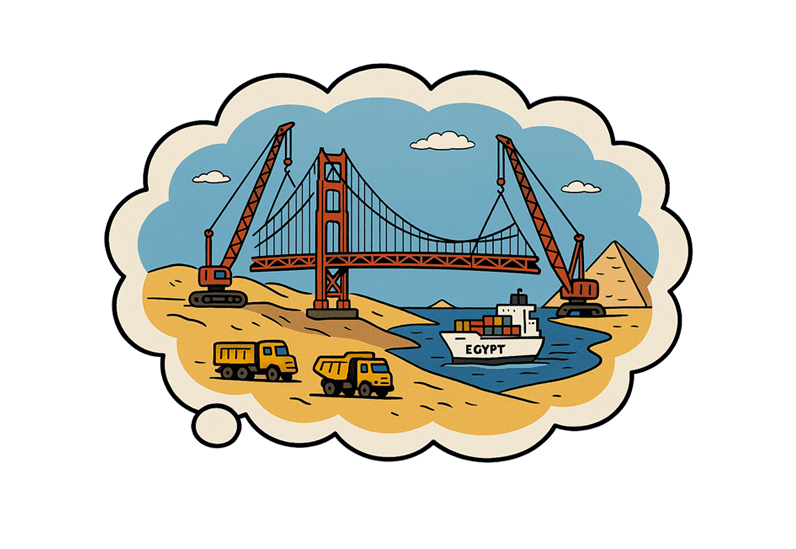International Expansion Checklist: 7 Things to Consider

Did you know that about two-fifths of the S&P 500 revenue is generated from outside of the United States rather than within? For medium to large businesses who seek sustainable growth and a bigger share of the global market, expanding overseas can be exceptionally profitable. However, bringing your products or services to new regions is a task fraught with challenges and essential considerations that are sometimes overlooked.
We’ve put together a list of seven key things to keep in mind when you plan to expand overseas. Integrating your business into a new area with a different language, different culture and different customs is easier said than done. To set yourself up with the best chances for success overseas, make sure to keep all of these in mind.
1. How to structure an overseas business
There are many ways to go about bringing your products to new countries, from creating a branch in each region, to franchising it to local entrepreneurs or opening up entirely new subsidiaries. You should consider how your overseas business will be taxed in each country/region and how it’ll integrate with your business as a whole. Each country has their own process for registering a business or establishing a branch office, and you may need to submit documents in the native language, or at least have a grasp of it in order to complete the process.
2. Ensuring compliance with local regulations
Simply packaging up your product or service and pushing it into a foreign market isn’t good enough. Each country has their own complex tapestry of safety regulations, tax laws, intellectual property laws and data protection laws that can make it challenging to enter the local market. And for certain licences and approvals, you’ll need to apply in the native language. Not having planned for this in advance could potentially cost your business thousands of pounds.
3. Understanding your market & customers
Expanding overseas quickly can be beneficial, but it’s important to take time to understand the local audience and market so you can ensure profitability. Customers in other countries may have different desires, requirements and interests than your local audience, or none at all. A solid strategy is to conduct deep and extensive market research using reputable data sources, such as industry reports, market intelligence platforms and even online tools like Google Trends. Before jumping the gun and expanding into a territory you think is profitable, you should investigate all possible areas for expansion and understand the nuances of their respective markets suitably.
4. Planning your localisation strategy
A co-ordinated and well-executed localisation strategy is more likely to ensure you don’t waste time, money and effort in a failed overseas expansion. Going only as far as translation isn’t enough; instead, consider your target audience, cultural nuances, idioms, ideas and themes, and use them strategically to create a powerful marketing plan that is built to suit that specific country. What works for your homeland audience most likely won’t work for a foreign audience. It’s not a bad idea to consult professional translators who are native speakers to ensure your marketing is accurate and appropriate.
5. Finding and relocating talent
You may have your dream team set up in your home country, but finding the right talent overseas can be trickier than it seems. How will you go about the hiring process, especially in a different language? Are there people on your team who could be suitable for working abroad? How do you ensure your team is culturally proficient and can adapt to a different working environment, customer demographic, and problems? A smart idea is to use local hiring platforms and recruitment agencies, seek out native experts who have experience in the market, and develop a comprehensive onboarding program that gets new hires accustomed with your company’s mindset and international expansion plans.
And even more importantly, you shouldn’t forget to consider the employment, hiring and wage laws of the country you plan to expand into. Some nations require more holiday time or a different process for employee termination. Regulations around hiring advertisements, employment contracts, minimum wage requirements and salary structures can vary. Ensuring compliance with these employment laws can get very messy very fast if you haven’t done thorough planning in advance.
6. Getting around logistics challenges
Now more than ever logistics are putting a hamper on global trade, and everyday businesses fail to expand overseas due to poor logistical planning. You’ll need to have a strong understanding of your target country’s import and export rules and their customs procedures. On top of that, it’s a good idea to network with local distributors and carriers to ensure your products reach their new buyers. It’s better to spend extra time finding the right logistics companies to work with than to waste time fixing mistakes and holdups in delivery. If you’re running a service business, consider how you’ll distribute manpower on the ground.
7. How to overcome the language barrier
Once you’ve overcome the hurdles of setting up your overseas venture, ensuring regulatory compliance and finding the right people and logistics, you’ll have to tackle the dreaded language barrier. It’s unlikely you’ll forget about this but mastering it is challenging, especially when every country has their own linguistic nuances, idioms and cultural expressions that could make your existing marketing messaging unsuitable. Working with digital translation tools can get you some of the way, but you should always look to work with experts who speak the local language to ensure precise wording.
You should also think about multilingual customer support, the language skills of your employees and vendors, and how to present your product to your target demographic. Working with a translation agency who specialises in B2B and B2C translation services, cultural consultation and most importantly, fluency and proficiency, can help your business integrate into new markets effectively.
Brightlines helps growing businesses like yours expand overseas with as little friction as possible, by providing comprehensive translation services so you can jump right over the language barrier. You can reach out to us for a quote here.






